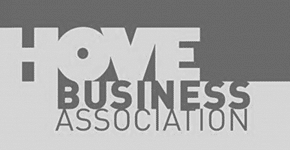
One of the first steps of any SEO or PPC campaign should always be keyword research. The name of the game is for your website to be found by as many people as possible for as many converting keywords as possible. Traditionally it has been suggested that if a keyword that attracts a large number of searches it will be of more value to rank for that term, this is no’t always the case.
A keyword is any word or phrase that someone using a search engine could potentially type in to find a website that contains relevant content. e.g. Let’s say you are an architect based on London. The keyword “Architects London” attracts about 2000 searches per month. Given there over 100 architects in London this is quite a competitive term and it can be difficult to rank for.
Table Of Contents:
Different Types of Keywords
Keywords such as “Architects” or “Architects London” are commonly referred to as short tail keywords. Whilst it is desirable to rank for these keywords they are often competitive competitive and harder to achieve a first page position for your website further more If you examine the commercial intent of someone searching for “Architects London,” they are not sure what they are looking for and are in research mode.
As you start to examine the architect niche in more detail you will quickly discover that “Architects” may be categorised into specialisations, e.g. Contemporary, Listed Building Specialists to name a few.
Whilst a keyword such as “Listed Building Architects London” attracts significantly less searches, it is less competitive therefore easier to for rank in search engines. A keyword that contains more than two words is referred to as long tail. An end user searching for long tail keywords will generally be looking for something specific. This implies a greater change they are out of research mode and ready to initiate contact with a company.
For this reason I feel it is advantageous to draw distinctions between different types of keywords, their implications and the mind set of an individual using a specific type of keyword.
A quick Google search will reveal numerous names for categories of keyword , I personally group keywords into the following:
- Short Tail Keywords
- Long Tail Keywords
- Branded Keywords
- Local Keywords
- Converting Keywords
Please note these definitions are not mutually exclusive and categories any given keyword will fall under multiple categories, the aim is really to understand the intent of a user
Short Tail
- Also known as vanity keywords. Usually quite broad.
- Usually 1-2 words. E.g. Prom Dress, Architect. Plumber
- Lots of searches via search engines as prospective customers are researching products and gathering information.
- As clients are not searching for something specific, they are not ready to buy , therefore conversions will be lower.
- Harder to rank for due to ambiguity and competition.
- Sometimes referred to as vanity keywords, as every business wants to rank for them.
Long tail
- Prospective customers are searching for something specific.
- Usually 3 or more words. E.g. Blue prom dress hire, Worcester Bosch boiler repair.
- General rule, 3 keyword people are interested. 4 or more words people want to buy.
- Receive far fewer searches via search engines however prospective customers have completed their research and they know what they want, therefore conversion ratios will be higher.
- Usually less competition and easier to rank for.
Branded
- A branded keyword is the name of your business or your company or your website URL.
- Branded keywords correspond to when someone searches for your company or a service your company offers. E.g. American Express Travel Insurance.
- Modern SEO is more akin to building an online brand across multiple web properties and most companies will rank very well for branded keywords.
Local
- A combination of any type of keyword plus a location. E.g. Plumbers Brighton. Dress Hire Brighton
- Generally easier to rank for as most small companies cannot afford good SEO.
- People are searching for a product or service offered locally, they will be further into the AIDA buying cycle but may still be comparing competitor offerings.
- Links Google’s Local business social platform. Very easy to manage degree of recommendation e.g. Google Reviews / 3rd party citations from sources such as YELP or FREEINDEX.
Converting
A buying signal used to attract attention. An internet user will know what they are looking for but will prefix a keyword with an operators or combinations of operators such as:
- Special Offers
- Discount
- Exclusive
- Cheap
- Coupon
- Sale
- Top Selling
- Best Selling
- Purchase
- Buy
- How about
- Purchase
- Price
- Online Coupon
- Online Promo
Online customer activity still follows the AIDA sales cycle and it is important to be conscious of this when identifying keywords that are of value to your business.
Whilst ranking for short tail keywords is desirable, time spent researching every keyword possible and devising a strategy to rank for as many long tail keywords as possible by implementing an inclusive and comprehensive web content strategy will yield the superior results.







